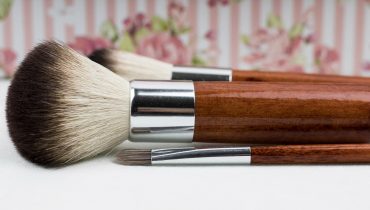For years, there has been a heated debate as to whether olive oil is good or bad for your skin. Recently, this debate reached its peak and olive oil was identified as the number one remedy for stubborn acne. Its users branded it as a natural alternative to expensive chemical-laden acne removal products.
However, lately, olive oil has returned to the limelight. Skin professionals claim that olive oil is the root cause of acne and should be avoided. All of a sudden, a single application of olive oil sets your skin up on the road to whiteheads, blackheads and pimples.
Confused? You are not alone. It seems everyone including bloggers and skin experts has an opinion on the subject, often with little to no background information to support their extravagant claims. The truth is, solely blaming olive oil as the primary cause of breakouts is far too sloppy.
After all, everybody has a different skin type, and different substances will react differently on different types of skin. With that said, it’s now more important than ever to focus our camera lenses on the olive oil debate and find an answer once and for all!
Let’s get started…
The three types of olive oil in skincare
Whether olive oil can cause you acne depends on which type you are using. Yes! There are actually 3 main types and understanding their differences will help you avoid future breakouts.
- Virgin olive oil
- Refined olive oil
- Pure olive oil
Think of these three like non-identical triplets. They originate from the same mom but have different traits and personalities.
For beginners:
- Virgin olive oil is of the highest quality. It is completely unrefined and has the lowest acidity levels.
- Refined olive oil is the next big thing but compared to virgin olive oil it is inferior in quality and has higher acidity levels.
- Pure olive oil is a blend of virgin olive oil and refined olive oil. It is actually the ingredient used in most skin care products.
If you were to compare the 3 types of olive oil, you’d notice that:
- Virgin olive oil contains around 10% oleic acid
- Refined olive oil contains around 40% oleic acid
- Pure olive oil contains an average of around 20% oleic acid
This makes a huge difference in the way these oils affect your skin. Oleic acid is twofold: it can do two things to your skin.
- Oleic acid has anti-bacterial properties – which is why it is recommended for fighting acne.
- Studies have shown that Oleic acid is comedogenic i.e. it can block pores – which is why you see reviews saying that olive oil causes acne.
Jeez! So, on one hand, olive oil can help clear breakouts while on the other hand, it can potentially clog up your pores.
Before you go ditching all olive oil containing products, there’s some more news for you.
Does olive oil cause acne?
Sometimes we use different products with the same ingredients and get different results. With one you’ll be all smooth and glowing; with the other, you’ll be channeling Olympic speeds to dump it in the waste bin. This means, some olive oil containing products work just fine whereas others are bad news. There are two possible explanations for this:
- There was only a small percentage of olive oil in the product.
- They might say virgin olive oil on the label, but they actually used refined olive oil.
You probably already know why the second one means that the product would cause you acne, so let’s look at the first.
Comedogenicity studies are usually very controversial because they use 100% concentration of an ingredient. Most skin care products are a mix of many ingredients, so when comedogenicity studies indicate a red flag for an ingredient, you might be able to still use a product that contains a little of the debarred ingredient.
So what’s a girl to do?
To be honest, olive oil is probably fine… IF you are not prone to acne, which is why you hear so many amazing reviews about it being wonderful for the face. If however, you are prone to acne, I would recommend you stay away.
Check also: The Best Face Wash For Acne Prone And Sensitive Skin
And don’t get me wrong there… oils are great for skin care, just not all. Numerous other non-comedogenic oils would do so much better on your skin. They include argan oil and hemp seed oil.
However, if you are brave and would like to give olive oil a try, make sure you use unrefined, organic virgin olive oil or pure olive oil. Then if it causes you acne, you’ll know it wasn’t the cheap chemicals causing you breakouts.
What are your thoughts? Have you used olive oil before? Did you love it? If not, would you try it? Or have I made you swear against ever touching it?


